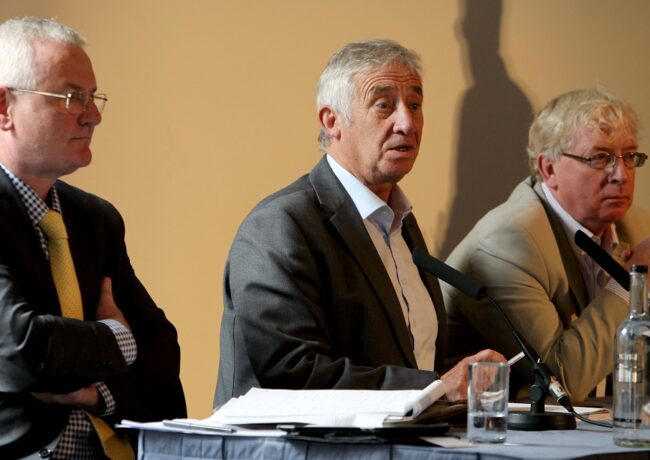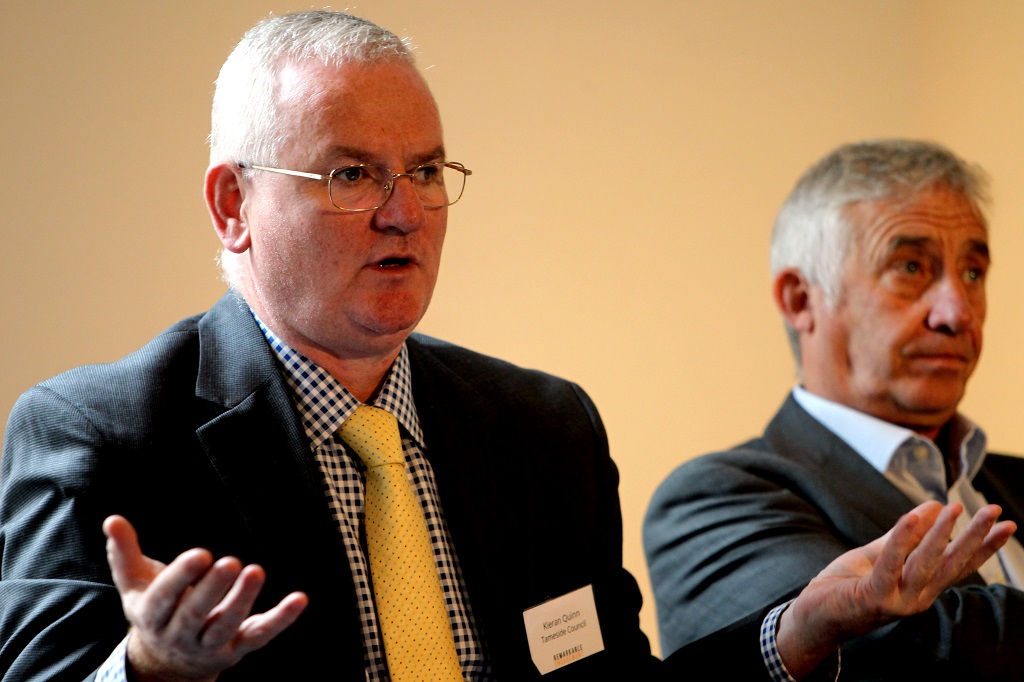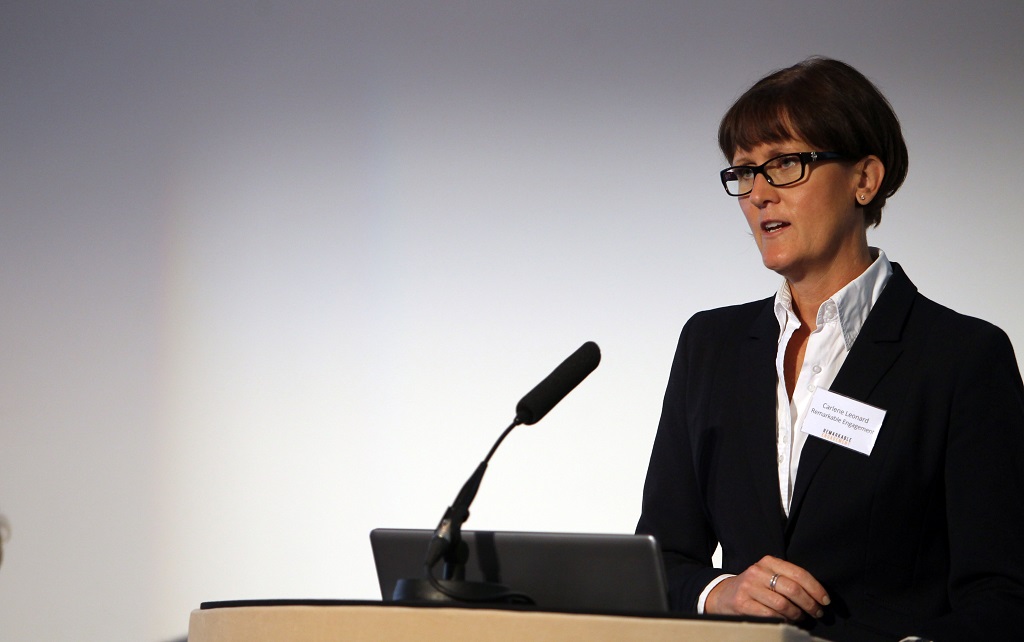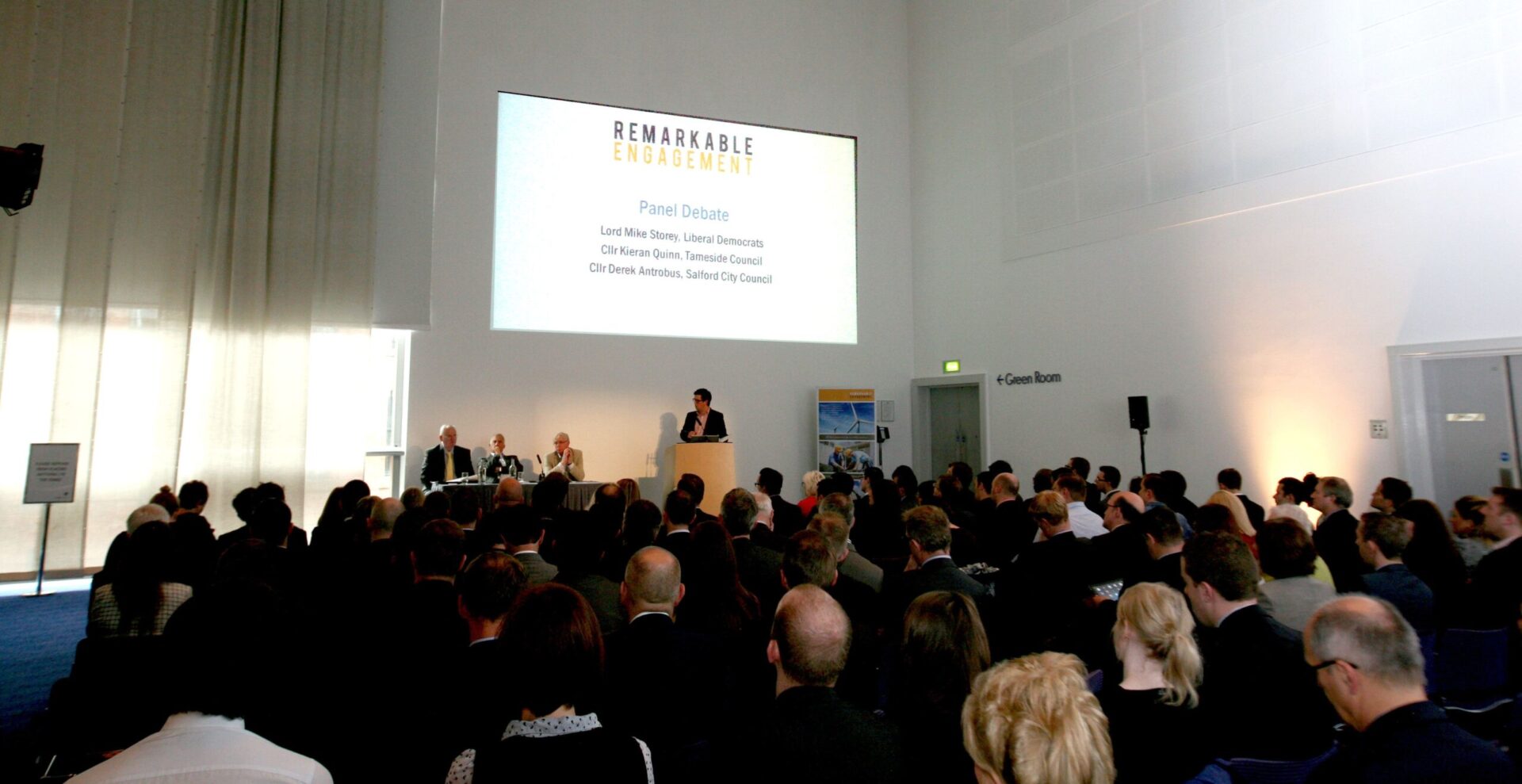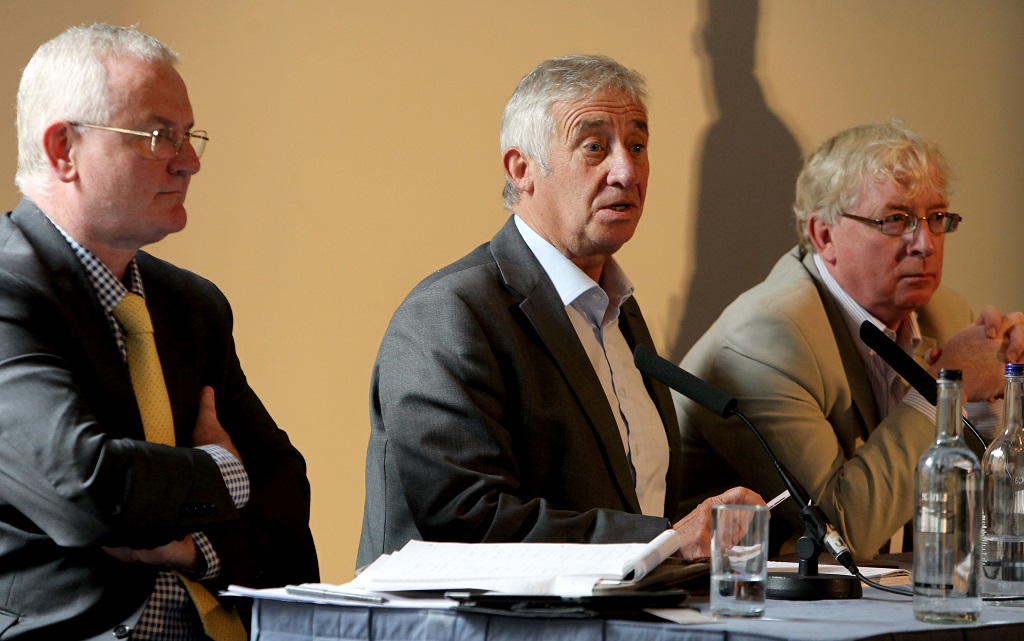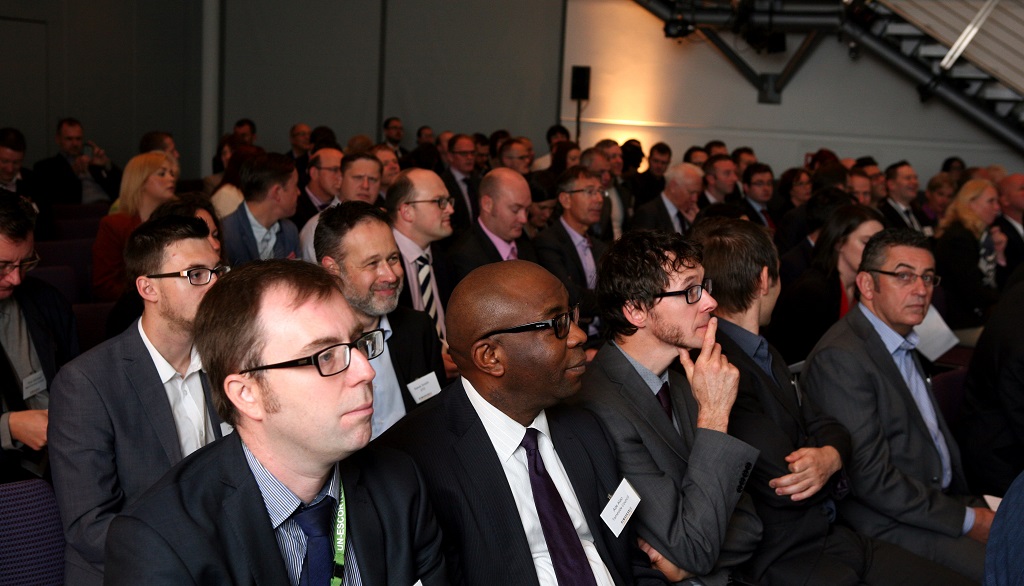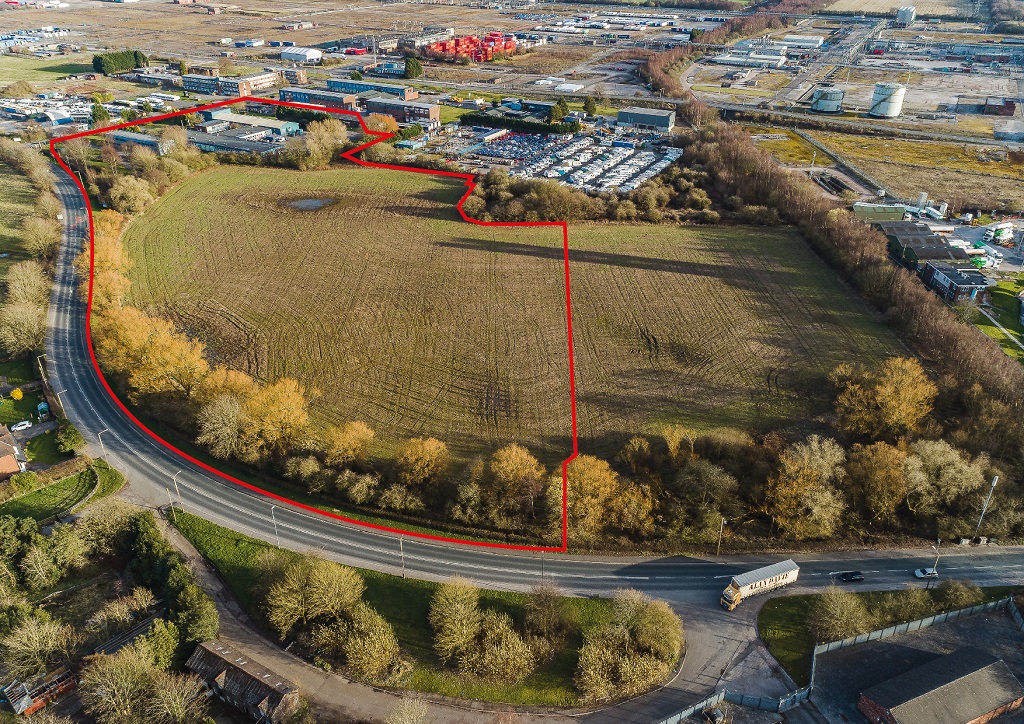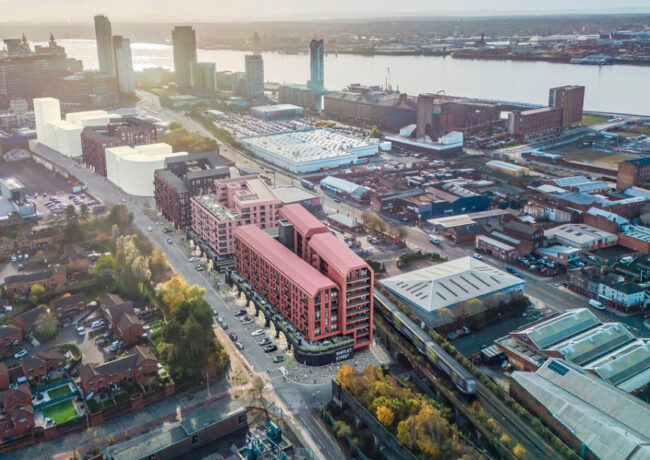Planning ‘not a barrier’ to housing
 Around 120 people attended a housing policy debate organised by Place North West in association with Remarkable Engagement to coincide with the Labour party conference in Manchester.
Around 120 people attended a housing policy debate organised by Place North West in association with Remarkable Engagement to coincide with the Labour party conference in Manchester.
The panel consisted of Lord Mike Storey, former leader of Liverpool City Council and life peer for the Liberal Democrats; Cllr Kieran Quinn, leader of Tameside Council and chairman of the Greater Manchester Pension Fund; and Cllr Derek Antrobus, assistant mayor for planning at Salford City Council.
See gallery below
The debate, held at the Bridgewater Hall, touched on key issues framing current housing discussions, including the greenfield development, the affordable housing pipeline and how the region can take advantage of talks around devolved powers following the Scottish Referendum.
Carlene Leonard, associate director of Remarkable Engagement, a public consultation and political engagement specialist, said: "Our thanks to the panel for a great debate. It's clear there is a strong consensus that more powers need to be devolved to local councils in order to encourage economic growth. What is also clear is that for regeneration to be a success, consultation with local people and community leaders is essential.
"As all the panellists highlighted, it is vital for communities to be involved in the creation and development of their local areas and we hope to build on these discussions with a further event."
Summary of main discussion points
On planning
Quinn: "Is planning a perceived barrier? I'm not aware of any planning applications for housing in my area that have actually been refused. I believe more local authorities are ahead of the game than most people think, and want to support development and see development take place."
Antrobus: "If you look at the amount of unimplemented permissions in Salford it's enough to deliver 13,000 new homes in the city, which is more than our five year housing supply. The problem is not with planning… there is absolutely no correlation between any change in the planning system and the delivery of housing. What makes the delivery of housing change is the price of housing in the market."
On devolution
Tameside leader Cllr Kieran Quinn: "Before the Scottish referendum we were already in quite intense discussions with the Treasury around new financial vehicles. But dealing with Whitehall is a nightmare, and getting the Department for Communities & Local Government to give us these freedoms to allow us to make these important cross-border decisions is hard. I'm a real advocate of this, I want us to get all the powers."
Commenting on Labour leader Ed Miliband's view that a constitutional convention should be established to examine English home rule, rather than draw up plans by the end of the year, as suggested by the Coalition, Storey said: "Miliband is right, there shouldn't be a knee-jerk reaction, it should be thought through very carefully. Peers voting on issues not in their area is a key point, and I think Cameron has set a political trap on this, particularly for Labour. If we do end up with MPs only voting on English matters it poses difficulties for a future Labour government without Welsh or Scottish support."
On social housing
Storey: "All three political parties have said that they are committed to building more homes. The Liberal Democrats have set a target of 300,000 homes and 10 garden cities, and says it will establish a ministerial taskforce to monitor delivery. However the real issue is the type of houses, and where the finance will come from.
"Social housing is an area sadly forgotten, but political parties have to look at social housing, and how they are going to engage local communities over this key regeneration issue."
Quinn: "The bedroom tax has had a clear impact, with 2,500 households affected in our area. Yet there are no new locations for people to move to."
On private sector housing development
Quinn: "We need to get the right partnerships in place to allow a place-changing approach. It's not just about dipping into the public purse, we need to look at how we can be smarter in how we stimulate our communities and stimulate building the new homes we require.
"Twenty-five years ago, two-thirds of the homes in this country were built by small housebuilders. Now that is less than a third. There are lots of sites that a large housebuilder wouldn't be interested in, and that is a great opportunity for smaller companies to come back on board."
On green belt
Salford's Cllr Derek Antrobus said: "Because of the dominant public view that all open land is green belt, we're in a position where really valued open space is the subject of developer attention, whereas some places in the green belt, if looked at objectively are less valuable to the local community than the non-greenbelt, could actually provide some of the housing we need. Somehow we must to turn round the debate on open spaces."
Lord Storey said: "If development isn't happening, there has to be intervention. But I also think that it seems bizarre to have a city, in my case Liverpool, where you have literally got thousands upon thousands of brownfield sites, and yet the council is building on parkland. Morally that's wrong, but how do you make the brownfield sites attractive to developers? You have to masterplan the whole area and include the whole community."
Click any image to launch gallery
- Cllr Kieran Quinn
- Carlene Leonard of Remarkable Engagement
- Peter Nears of Peel asks a question


